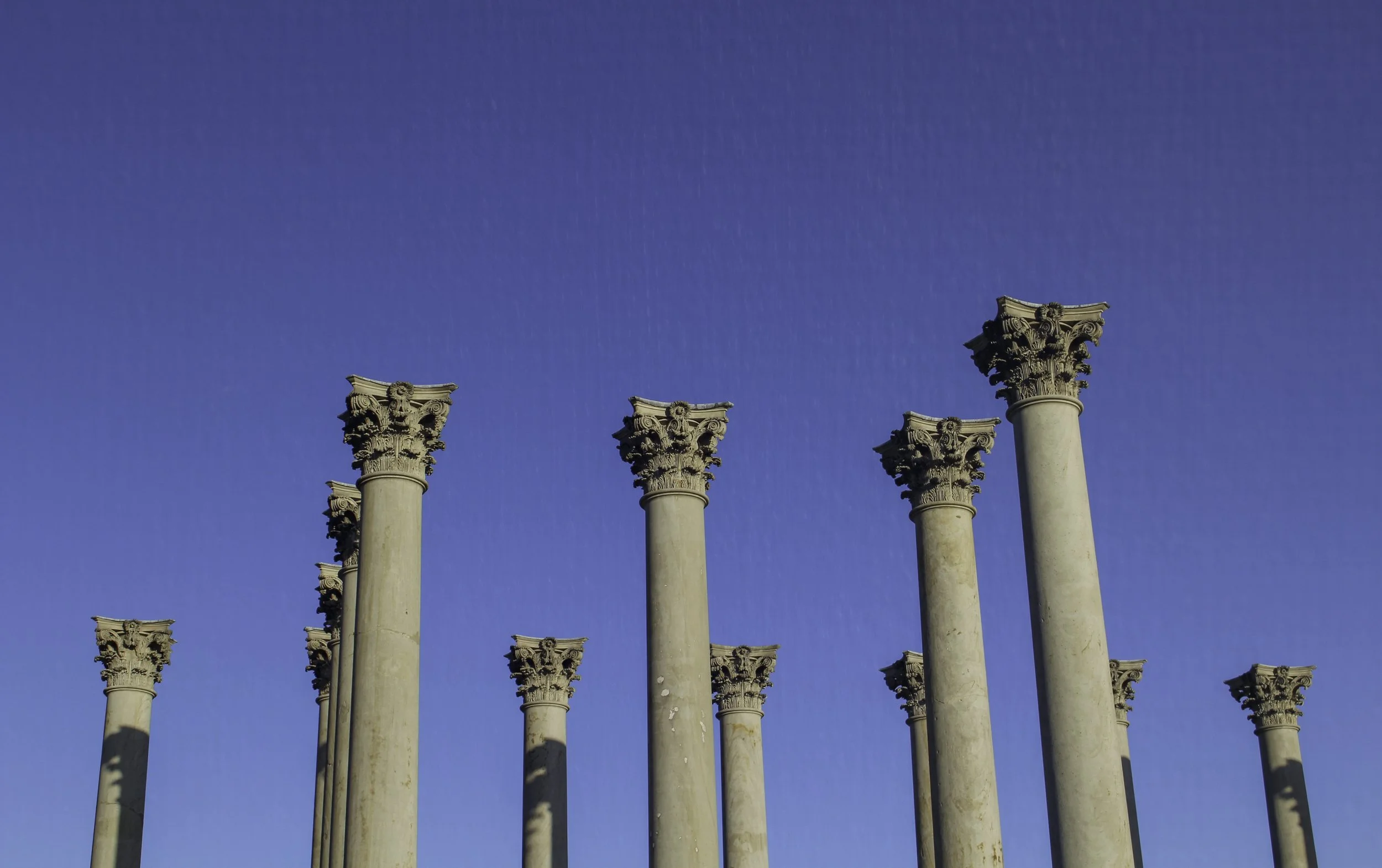Leadership for American Unity
We make our country more just and free when we collaborate, build trust, and build endurance. The Leadership Journal is a digital companion to the printed volumes offering inspiration for American unity. When we choose unity, we become leaders who make our country more just and free. Sign up here with your email to get every post delivered to your inbox.

Speaking of her time leading the Underground Railroad, Harriet Tubman said this:
“I never ran my train off the tracks and I never lost a passenger.”
What’s inspiring to me about this statement is that Harriet’s leadership included politics, civil rights, forward progress, the human experience as it should be, severe personal trauma, contemplative faith, leading teams—and physical endurance.
I started Liberatus in 2015 partly because it’s ambiguous what exactly we were fighting for in Congress. While we said we were fighting for freedom, in the words of former Congressman Raul Labrador, Capitol Hill “is a place that just sucks your soul.” But why?
“He’s a principled conservative.”
After working within the conservative movement, it’s not clear to me what this statement means.
But I think it means something like this: There’s a conservative view of things that is the truth, therefore, he stands on that truth no matter the costs, achieves top marks on legislative scorecards, and those who don’t hold to principles might be nice to people but they’ll never be champions.
Today, often the farthest we go with this advice is to say that we should “turn down the heat” when things get too ugly. But to govern the country well, we need constructive parameters for what it means to restrain partisanship, in the same way that Olympic athletes have constructive parameters for how to perform at their best, follow the rules of their sport, and uphold sportsmanship.
Franklin gives us the mindset to make consult become part of our day-to-day lives in American politics, in the same way that collaboration and teamwork so often define the Olympics—or advances in human exploration like the creation of the hot air balloon.

In any endeavor, managing our energy or creative rhythms can help us perform at a sustained, high level over time. It’s not enough to believe in the cause—we all need food, fresh air, and sleep.
Over the years working in politics, these are some of the creative rhythms that I’ve found are critical for sustaining high performance.
While dysfunction is ingrained in our way of operating, we can choose unity or craftsmanship at any time, in any place. Creating a culture of American unity for the next generation by inspiring it today is about lifestyles where we endlessly collaborate, build trust, and build endurance.
Burnout is the inevitable result of ideology and division and will always be their outcome. But we should look deeper at its root, and the reason for its root, in the same way that we did in the last two journal entries for ideology and division. In doing so, my observation based on firsthand experience in the American economy while running Liberatus is that the root of burnout is The Great American Deception.
We can be proud of our country, but we can’t rewrite history to say that all people were included. Still, it stands to reason that any objective fault we might find with the generations before us will also be found in us by the generations after us. It’s imperative that we work to make the country more just and free so that the next generation is stronger, so they can take up the quest for the generation after them too.
Since the cycle of dysfunction begins with ideology, we should explore its root, the reason for that root, and we should explore the way out to freedom so that we can find relief from it. For this series, I am defining ideology not simply as having ideas for possible solutions that we then consult with each other about, but rather ideas that don’t take into account the full picture and are then polarized to force us to take sides.
We can reverse the cycle of dysfunction—ideology, division, and burnout—when we choose the pattern that is the essence of unity: collaborate, build trust, and build endurance. It’s an infinite pursuit, and everyone can participate where they are to unite the country and make it stronger.
How we use power matters. It is not a question of whether we use power. As citizens of the United States, we all already have power, and the choices we make are a use of power. Voting is a use of power. Not voting is a use of power. Organizing politically is a use of power. Indifference is a use of power, too.
Issue 020: Which Way Forward? began April 3, 2024. Read the series preview here.
I know we have all faced significant challenges in life over the last nine years—and yet, when we choose our hard, when we choose to build endurance, we can make our country more just and free. The goal of raising $2,000 in monthly contributions matters because the stakeholders that we serve deserve the best service we can give them.
The lonely beach where the Wright Brothers from Ohio created the first airplane has been, for me, one of the chief sources of inspiration for Volume One and all of our work together so far. And having worked in politics, and seen the problems firsthand—and participated in them—I know that the mission to inspire American unity is a critical element of making our country more just and free.
Nine years ago, when I said goodbye to my grandfather for the last time in Ohio, I was working on Capitol Hill. The vision for Liberatus was already forming, and when I saw him in his final days I was embarrassed by what daily life in Congress was like.
My vision for Liberatus is not to create a personal brand. After a traumatic brain injury, I of course would like to go fast because I want quick wins, and the societal dignity that comes with them. But making our country more just and free is about going far together. Before she led free people away from the abusers who treated them like slaves, Harriet Tubman survived a brain injury too.
The participation by Liberatus stakeholders in the mission to inspire American unity over the last nine years made it possible to publish 19 writers, include 60 people in content creation, create and ship 215 copies of Volume One to people in 21 states so far, and contribute $666 in funding to three partner organizations to fuel their work to care for people who have been displaced or marginalized.
Craftsmanship in politics is about listening, asking questions and doing deeper research to search for wisdom, and it’s about creating new solutions for the next generation. We can also take David McCullough's advice to “learn to edit yourself” a step further, to its broader meaning: lead yourself.
Over the last nine years, more than 200 stakeholders have brought the mission to inspire American unity to life. Thank you to all of you for your shared passion! We all want leaders who make our country stronger. We want a basic sense of sanity and justice. We want quality craftsmanship, and we want to make the next generation stronger.






















To conclude this series exploring quotes that make up the foundational ethos of the mission, I want to highlight two, bringing the last two journal entries in this series into one.